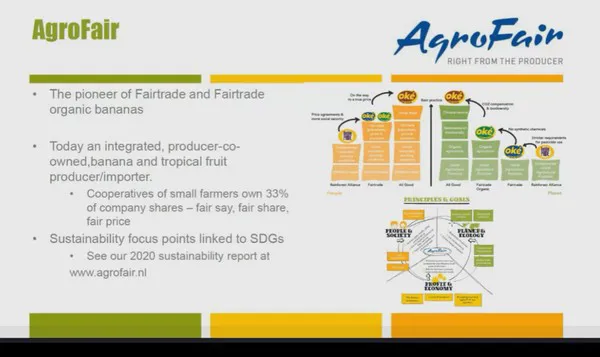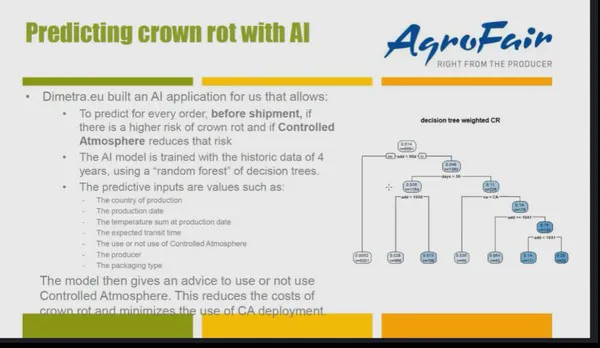At last week's Cool Logistics' conference food waste was high on the agenda and it was discussed on how reduce this waste in supply chain.
 Theofrastos Mantadelis, Founder, dimetra.eu has worked together with AgroFair a pioneer in Fairtrade and conventional and organic bananas, Theo built an AI application to predict and reduce the risk of crown rot in bananas.
Theofrastos Mantadelis, Founder, dimetra.eu has worked together with AgroFair a pioneer in Fairtrade and conventional and organic bananas, Theo built an AI application to predict and reduce the risk of crown rot in bananas.
Crown rot occurs in bananas during transportation over long distances, the way to limit this, especially in organic bananas is to use controlled atmosphere containers, but this is an expensive way of shipping.

AgroFair collected a wealth of data on the quality of their bananas on arrival at the destinations and after analysing that data Theo discovered a strong correlation between crown rot and increases in temperatures in the growing areas and also the transportation time.
He developed and AI app to model the risk of bananas developing crown rot. It can predict if the bananas will develop crown rot in transit before they are shipped. It can show how different factors contribute to this risk, these include, where they are grown, dates of harvest and packaging.
The AI model predicts no, low or high risk to an accuracy of 96%. If the risk is high then the bananas should be be shipped in CA transport especially if they will have a long transit time.

Results from Peru have been very positive and there has been a 50% reduction in crown rot on arrival. This means less waste and higher gain when the bananas reach the market.
The investment is around $20,000 with a pay back time of less than one year according to Theo.
He said that AI and machine learning can play an important part in reducing quality problems, but in order to do this you must have good historical data. The more data you have, the better the results, he is now looking at other diseases and other kinds of fruit.
